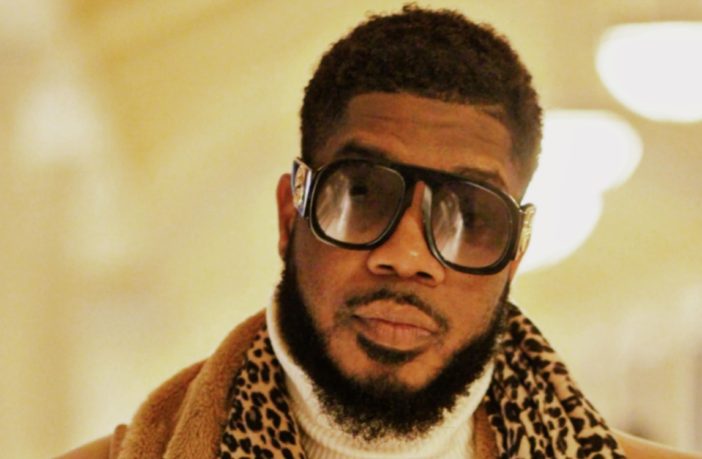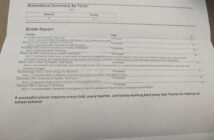With more young Black men being raised by single mothers, author Q. Allen poses an intriguing question with his new stage play Can a Woman Raise a Man? And his answer is definitive. “A mother’s love is incredible,” he declares to EBONY. “There’s an old proverb that says love is stronger than death. When I thought I wouldn’t make it, she helped me to become everything, and it wouldn’t have happened without her continued love. I wish this Mother’s Day that all the families with mothers and sons will be healthy.”
The path Allen took from single-parent child to playwright wasn’t an easy one. His mother and father divorced when he was a teen, and Allen responded by acting out. My mother had a lot of trouble trying to control me and reel me in, and for her to just understand what I was walking through, it was just a challenge for us trying to figure it out.” Can a Woman Raise a Man, based on his book of the same name, has been his salvation. “Being able to turn individual pain into purpose and show a family getting from the side of struggle, trauma and drama to triumph is just an incredible story.”
Here, Allen talks about the production and his life journey and offers advice for fathers, mothers and their communities on raising sons.
EBONY: What is Can A Woman Raise A Man about? Is it a rock musical? Is it a gospel? A statement on the state of things?
Q. Allen: It’s all of the above. It’s an urban problem. It’s a national problem. It’s an international problem of putting the power of families back together. We use it all in an incredible panoply, and it’s based on real-life happenings I went through.
You wrote this after going through a divorce and you were temporarily homeless?
I didn’t like to talk about this before, but absolutely. Divorce can be financially burdensome. I tried to make some moves and just, in all my pain, I decided I was going to try to go back to the streets. So I literally left southeast Washington D.C. and headed toward California, trying to get back into the “street life” as I needed about $20,000 to fight for the kids in coordination. But just by serendipity, and now I would say by the grace of God, that transaction never happened. I lost more money and I ended up in Las Vegas all by myself. I was very angry at the white man and the Black man and every man until I looked, like Michael Jackson would say, at the man in the mirror. God began to deal with me and that’s when I began to write. It was very cathartic. I would sneak into this old abandoned building for shelter. They had a computer lab on the premises and the lady would let me come in, and I would just stay there and write all day. It was my way of dealing with what was going on, and I realized that I had the most phenomenal mother in the world. She had done her job. And now it was time for me to do mine. I faced some of my personal demons and pains, and I reconnected with my father.
What are some of the personal experiences you speak of in the play?
My mom was a devout Christian, you’ll see her in the play, we were in church all the time. I never saw any type of lasciviousness from her. My father, on the other hand, was at the church, but we had some problems getting him to turn from stone-cold gangsta. They were just opposites; it made for very interested in childhood. They split and unfortunately, my father ended up back on drugs. I was about 12 or 13 when we walked into the single-parent dynamic, and then it was just my mom, my sisters and I. That’s where the birthplace of this discovery, pain and struggle began, we just weren’t used to being that type of family unit.
Is your father’s story reflected in the play?
There’s a character based on his incredible recovery, from fighting substance abuse and drug addiction to becoming a bishop, pastor and community leader. He did a lot of firsts in his community on the east side of Baltimore; I love that guy. We struggled to build a relationship at one point, we tried to fight each other. But at some point, I realized that if I fight him, I’m fighting me. Now he’s like my best friend. We talk every day, and I’m trying to move him into my house right now. We just love each other a lot. This story is not just about the pain, but the purpose; there is another side if you can just endure and get to it.
What was one of the hardest things to deal with as a young man growing up without your father figure?
I think I went through what a lot of young men go through, just wanting to help. I have a chapter in my book called “Emotional Insights.” As a young man, I wanted to step into that father role, but I just didn’t have the skill set nor the communication and provisionary skills. Also, a lot of times, you see guys turn to the streets and do whatever, trying to find a way to do the best that they can. I think Tupac said it best. In his song “Dear Mama,” he says, “even though I sell rocks/It feels good puttin’ money in your mailbox.” I watched my mother dig ditches, I watch her take two or three jobs at a time, and I just knew I had to do something. You got to choose your way out—it’s either going to be crack rock or a wicked jump shot. It can be very challenging.
What about the greatness you saw in your mother?
My prayer life and my tenacity are from my mother. We were huge section eight and food stamp babies. But my mom would make me get into oratorical contests. I literally had a scholarship at the local Playhouse there, which is amazing. When everybody else told me I had learning disabilities, my mom said, “No, not my baby.” I went from not being able to read to writing plays and sonnets and everything, all because of that woman. While we may have been in the hood, she would never let a hood mentality get inside of us. I tell her all the time I am so grateful for what she did and what so many mothers do.
Did you see a big difference between your sisters and yourself being raised by your mom?
I think they may have had an even harder adjustment because they were daddy’s girls. When that wasn’t there, you see the lack of identity and a lot of pain. And there was a lot of volatility. Our mom didn’t have that other voice to balance things out. So it was difficult. I’d be there breaking up arguments. We had to learn how to function through all these different dynamics.
Cast from a live recording, Can A Woman Raise A Man. Image: courtesy of DFTV.
Tell us more about the music in the production.
We use some gospel standards that everybody is familiar with. So you’re going to come, and it’s going to feel like Sunday morning. I wrote some original songs, the theme song and the anthem, and I wrote a song in a scene where the character Tim, the supporting male lead, loses his son; he can’t get to him anymore, and he’s in pain. I wrote that song because I understand it firsthand, I’ve been on every side of that equation. So it’s a great amalgamation. We’ve got Grammy Award winner Kierra ‘Ki Ki’ Sheard and gospel star Jokia Williams in the production as well.
So what is the answer to the question: can a woman raise a man?
The old African proverb says it takes a village to raise a child, so the answer to can a woman raise a man is that she should never have to. The community and everyone should get involved. We should have a culture of caregiving, especially for single mothers and single-parent families, to get to the other side and turn pain into purpose.
You now have children of your own. How do you stay connected to them?
Listen, I tell all the fathers, you may not be physically there, but my kids are gonna get constant texts and support; my daughter now has one of those cash apps. I listen and when I can, I’m there. So fathers, we just got to keep showing up in whatever capacity that looks like. And I bug them, they get morning messages and I send them prayers and I get on their nerves. But they have no idea that more than anything in the world, being their dad is my greatest privilege. I’m so happy to say fatherhood is the greatest hood you could ever be from. I’m so glad to be a father and be a part of their lives.
Can A Woman Raise A Man is playing May 13 and 14 at Park 8 Event Center in Houston, and streaming live on Mother’s Day at DFTV Sports @QALLENGLOBAL.COM.



